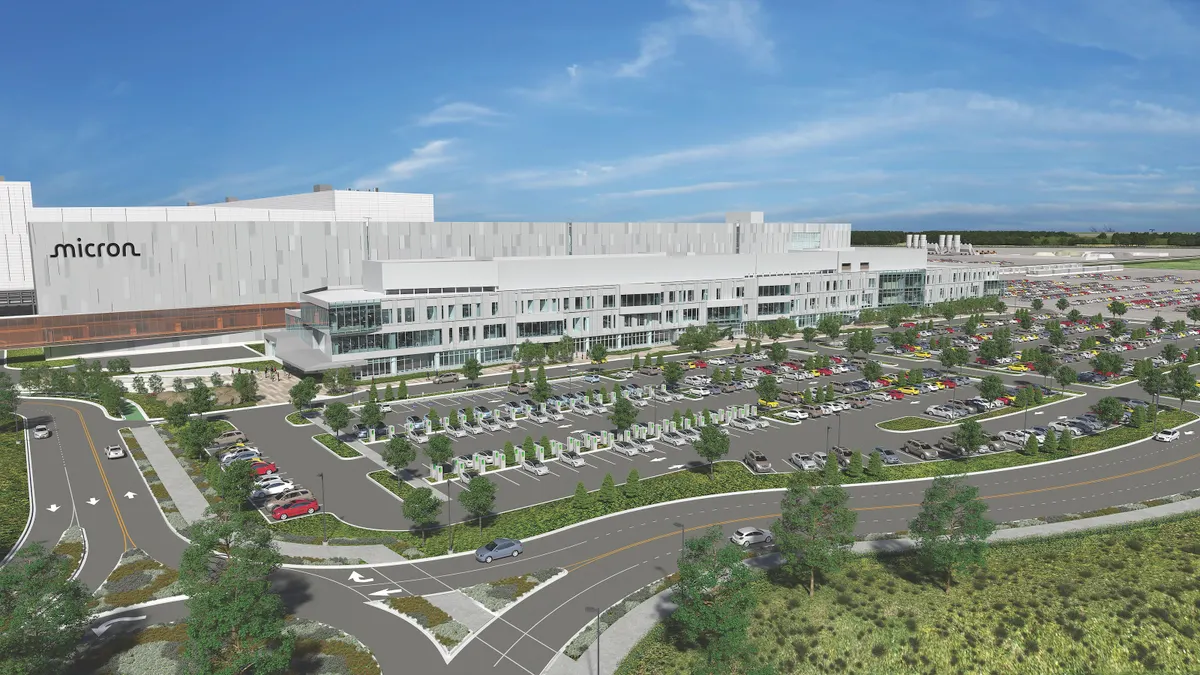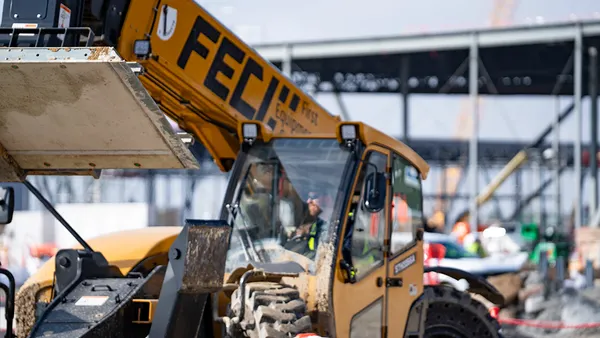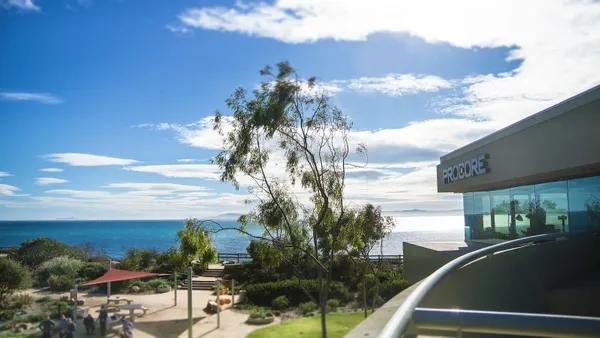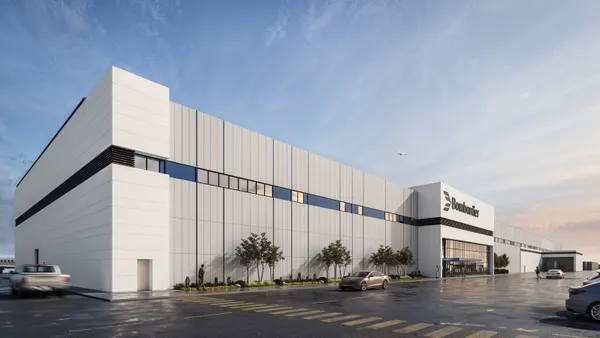Dive Brief:
-
Plans that would have permitted nearly 10,000 new homes to be built around Google’s forthcoming North Bayshore campus are being reconsidered by Mountain View, CA, officials, according to the Silicon Valley Business Journal.
-
An environmental review found that the area is only equipped to handle 1,500 to 3,000 housing units, depending on parking ratios, even if a nearby highway off-ramp was built and other improvements to area transit were made.
-
The latest review does not disqualify the initial Environmental Impact Report that found 10,000 units feasible. The call for fewer units primarily concerns parking availability; 1,500 units would allow for 1.2 parking spaces per unit while 3,000 units could accommodate just 0.6 spots per unit.
Dive Insight:
While the prospect of 10,000 new homes near Google’s planned campus raises some issues, it is poised to address others.
For instance, the additional local housing could help with North Bayshore’s traffic concerns as Google plans to set up shop there. With just a 350-unit mobile home park available in that part of Mountain View, Google employees will be required to travel in from all over the San Francisco Bay Area, which will inevitably lead to congestion on the roads.
Meanwhile, in nearby San Jose, CA, Google is eyeing real estate near a popular transit hub to decrease employees’ reliance on cars to get to work. The campus would be near San Jose’s Diridon Station, which serves numerous rail options that include BART, Amtrak and Caltrain.
The second issue the new units could address is the lack of affordable housing available not only in Silicon Valley, but also in California at-large. In the Bay Area alone, four counties are each 10,000 units short of what’s required for residents who need affordable housing. The state has been 100,000 new housing units short of demand each year for the last decade, according to the California Department of Housing and Community Development.
Ten percent of housing projects built in Mountain View must be earmarked for low and middle-income residents, or the developer must pay a fee. Google previously said it would likely opt to add housing rather than pay the fee. The company also said the units would not just be for Google employees, but rather for anyone working in the area as a way to help reduce traffic and make housing more accessible.













